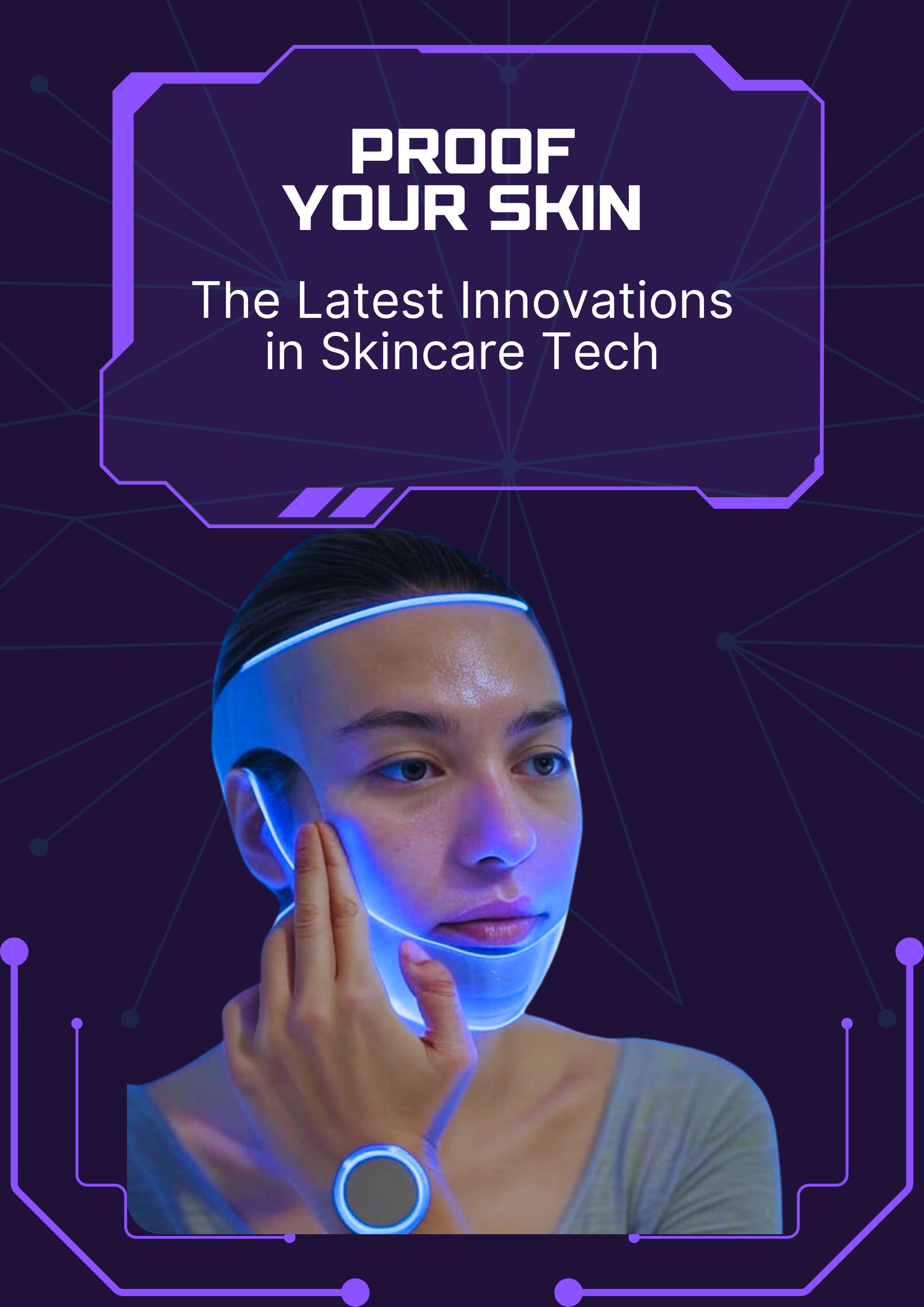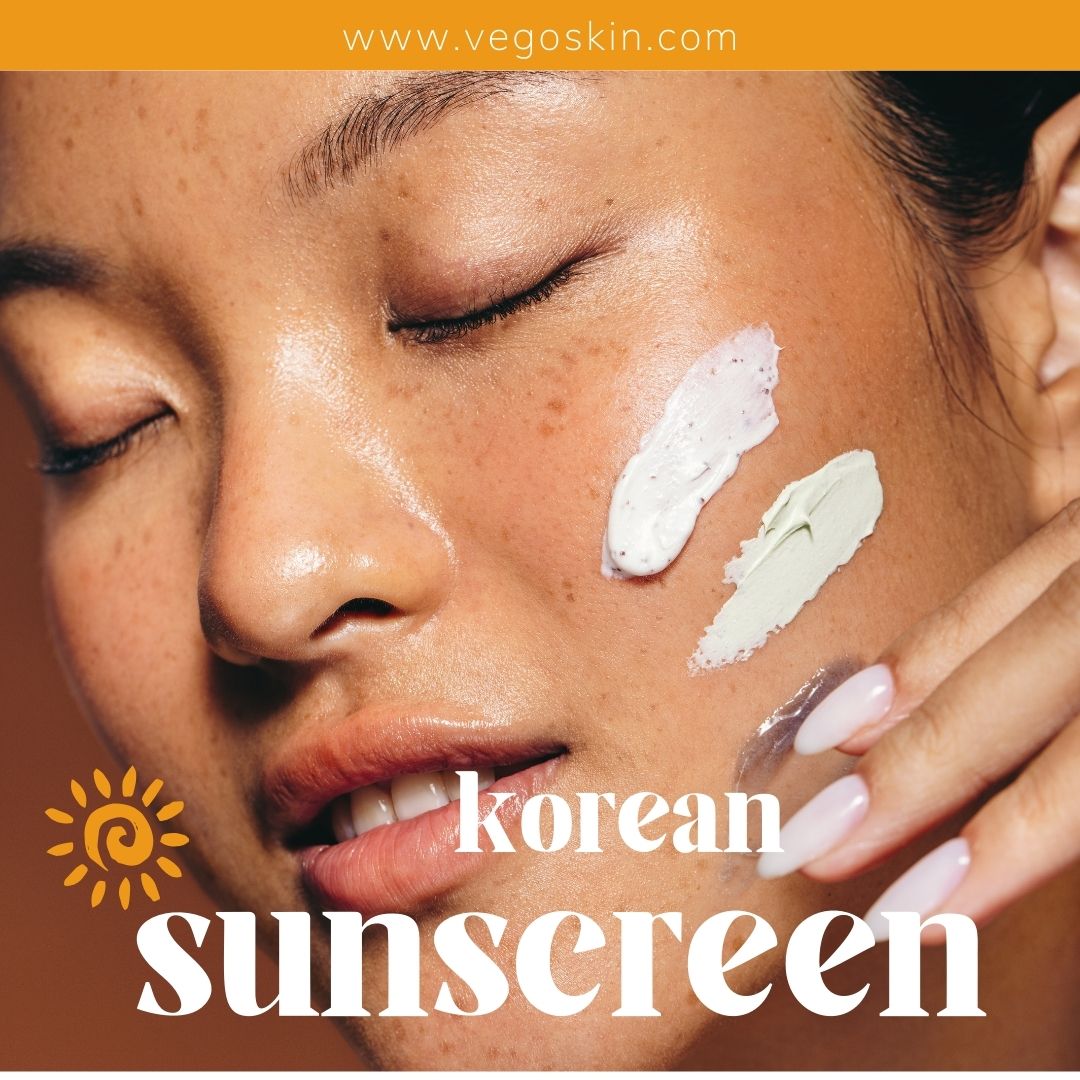Proof Your Skin: The Latest Innovations in Skincare Tech.
Skincare has transcended its humble beginnings of basic cleansers and moisturizers, blossoming into a dynamic fusion of science, technology, and self-expression. In 2025, achieving radiant, resilient skin involves more than a nightly cream—it’s about leveraging cutting-edge innovations to protect your skin from aging, environmental stressors, and modern lifestyle challenges. From artificial intelligence crafting personalized serums to wearable sensors tracking UV exposure, the latest advancements are redefining how we care for our skin. In this deep dive, we’ll explore the most exciting breakthroughs in skincare technology, showing you how to future-proof your skin for a glowing, healthy complexion that stands the test of time. Let’s unpack the tools, ingredients, and trends that are making this possible.
The Revolution of Smart Skincare Devices
Smart skincare devices have democratized professional-grade treatments, bringing dermatologist-level care into your bathroom. Brands like Foreo with their Luna 4 ands NuFACE with the Trinity device are at the forefront, offering tools that cleanse, tone, and rejuvenate with unparalleled precision. These gadgets harness technologies such as microcurrents to stimulate facial muscles, ultrasonic vibrations for deeper cleansing, and LED light therapy to address specific concerns like wrinkles or acne.
Take LED masks, for instance. Popularized by Dr. Dennis Gross Skincare, these masks use red light to boost collagen production, reducing fine lines, and blue light to eliminate acne-causing bacteria. Some models even incorporate near-infrared light to promote healing and reduce inflammation. These devices often sync with mobile apps, allowing you to customize settings based on your skin’s daily needs. Imagine a mask that adjusts its intensity after detecting a breakout—that’s the power of smart skincare.
Smart mirrors are another game-changer. The HiMirror uses AI to analyze your skin, identifying issues like dark spots, redness, or enlarged pores. It then suggests products or routines tailored to your concerns. These mirrors can track changes over time, giving you a clear picture of what’s working. For those who love data, devices like the Neutrogena Skin360 scanner measure moisture levels, pore size, and wrinkle depth, offering insights that rival a dermatologist’s assessment. As prices drop, these tools are becoming accessible to a wider audience, making high-tech skincare a reality for all.
Beyond mirrors and scanners, cleansing brushes like the PMD Personal Microderm Pro exfoliate and polish skin using spinning discs, while at-home laser devices like the NIRA Precision Laser stimulate collagen with non-invasive light. These tools empower you to maintain salon-quality results without leaving home, saving time and money while elevating your routine.
AI and Personalization: Your Skin, Your Formula
Artificial intelligence is revolutionizing skincare by making it deeply personal. Companies like Proven Skincare and SkinCeuticals Custom D.O.S.E use AI algorithms to craft bespoke products. By inputting data about your environment (think pollution levels or humidity), lifestyle (stress or diet), and skin concerns (acne or dullness), these brands create serums, moisturizers, or cleansers tailored to you. This isn’t just marketing hype—AI analyzes thousands of data points to ensure every ingredient serves a purpose.
AI-powered apps take personalization further. YouCam Makeup and Troveskin use facial recognition to monitor your skin’s health, detecting changes like new wrinkles or improved hydration. These apps act like virtual skincare coaches, recommending adjustments to your routine based on real-time data. For example, if you’re traveling to a dry climate, the app might suggest a richer moisturizer. This level of precision eliminates trial-and-error, saving you from wasted products and frustration.
For a deeper analysis, at-home diagnostic tools are gaining traction. The Neutrogena Skin360 scanner, for instance, provides detailed reports on your skin’s metrics, from oil production to fine lines. Similarly, L’Oréal’s Perso device creates custom skincare and makeup formulations on demand, adjusting for factors like weather or hormonal changes. These tools empower you to understand your skin like never before, bridging the gap between consumer and expert. With AI, skincare is no longer generic—it’s a custom fit for your face.
Future-Proof Your Skin: The Latest Innovations in Skincare Tech
Ingredients are the heart of any skincare routine, and today’s formulations are smarter than ever. Bioengineered ingredients are leading the charge, offering sustainable alternatives to traditional compounds. For example, Biossance uses sugarcane-derived squalane, a lightweight yet powerful hydrator that mimics your skin’s natural oils. Unlike animal-derived collagen, lab-grown versions are cruelty-free and better absorbed by the skin, making them a staple in anti-aging products.
The skin microbiome is another hot topic. Your skin hosts a complex ecosystem of bacteria that protects against irritation and breakouts. Harsh cleansers can disrupt this balance, leading to issues like redness or acne. Brands like Mother Dirt and Aurelia Probiotic Skincare are formulating products with probiotics and prebiotics to support this ecosystem. Their cleansers, serums, and masks nurture beneficial bacteria, promoting a stronger, healthier skin barrier. Studies show that a balanced microbiome can even reduce sensitivity, making these products ideal for reactive skin types.
Nanotechnology is pushing ingredient delivery to new heights. By encapsulating actives like vitamin C or retinol in tiny particles, nanotechnology ensures they penetrate deeper into the skin for maximum efficacy. La Roche-Posay uses nanoparticle zinc oxide in its sunscreens, offering broad-spectrum protection without a heavy feel. Similarly, The Ordinary incorporates nano-peptides in its serums to target fine lines with precision. These advancements mean your products don’t just sit on the surface—they work where it counts
Fermented ingredients are also trending, as fermentation enhances potency and bioavailability. SK-II popularized this with its fermented yeast extract, Pitera, which brightens and firms skin. From kombucha-infused masks to kimchi-derived serums, fermented ingredients are a natural yet high-tech addition to modern skincare, offering antioxidant and anti-inflammatory benefits.
Wearable Skincare: Tech You Can Wear
Wearable technology is no longer limited to fitness trackers—it’s now a skincare essential. Devices like L’Oréal’s My Skin Track UV monitor your exposure to UV rays, pollution, and humidity, sending alerts to your phone when it’s time to reapply sunscreen or avoid the sun. These wearables are discreet, often clipping onto clothing or fitting into a pocket, making them practical for daily use.
Transdermal patches are another innovation. Patchology offers patches infused with hyaluronic acid, caffeine, or retinol, which deliver ingredients gradually over hours. These are perfect for targeting specific areas, like crow’s feet or nasolabial folds, and can be worn overnight for convenience. Some patches, like those from SiO Beauty, use medical-grade silicone to smooth wrinkles by hydrating and compressing the skin while you sleep.
Looking ahead, researchers are exploring futuristic wearables. At MIT’s Media Lab, scientists are developing skin-interfacing sensors that monitor pH, hydration, or even stress hormones in real-time. These could take the form of temporary tattoos or flexible patches that sync with your phone, providing instant feedback. Imagine a sensor that vibrates when your skin’s barrier is compromised, prompting you to apply a ceramide cream—that’s the future of wearable skincare.
Sustainability and Ethics: Skincare with a Conscience
As we future-proof our skin, we’re also prioritizing the planet. Sustainability is non-negotiable in 2025, with brands like Lush and The Ordinary leading the charge. Refillable packaging, biodegradable formulas, and carbon-neutral production are becoming standard. Kjaer Weis offers luxurious creams in sleek, reusable metal compacts, blending eco-consciousness with elegance.
Upcycling is a creative trend. Brands like UpCircle Beauty transform coffee grounds, fruit peels, and herb extracts into exfoliants and serums. These ingredients, once destined for landfills, are rich in antioxidants and gentle on the skin. Upcycled skincare reduces waste while delivering potent results, proving that sustainability can be high-performing.
Ethical practices are equally important. Consumers are rejecting brands that test on animals or use harmful chemicals. Drunk Elephant and Tatcha champion clean beauty, avoiding parabens, sulfates, and synthetic fragrances. Transparency is key—brands now share their sourcing and manufacturing processes to build trust. By choosing ethical products, you’re investing in your skin and a better world.
Future-Proof Your Skin: The Latest Innovations in Skincare Tech
Ready to integrate these innovations into your routine? Start with one or two changes to avoid overwhelming your skin. If you’re curious about smart devices, try an entry-level tool like the Foreo Luna Mini or an LED mask from CurrentBody. For personalization, take a quiz on Curology or Proven Skincare to get a custom formula. If sustainability is your focus, swap your cleanser for a refillable option from Herbivore Botanicals.
Consistency is crucial. Use your high-tech tools or products regularly—most require weeks to show results. Pair them with timeless basics: a broad-spectrum SPF like Supergoop!, adequate hydration, and a nutrient-rich diet. Apps like Troveskin can help you track progress, ensuring you stay on course.
The future holds even more promise. Stanford University researchers are exploring gene-editing to repair skin damage at a cellular level, while L’Oréal is developing augmented reality tools to simulate product results. 3D-printed skin, already in testing for medical use, could soon personalize skincare by replicating your skin’s exact structure for testing products. Virtual reality consultations, where dermatologists analyze your skin in a digital space, are also on the horizon.
Embracing a High-Tech Skincare Journey
The beauty of these innovations lies in their ability to empower you. Whether you’re tackling acne, preventing aging, or chasing a dewy glow, there’s a technology or ingredient designed for your needs. Smart devices, AI personalization, bioengineered ingredients, wearables, and sustainable practices converge to create a skincare routine that’s as unique and forward-thinking as you are.
Future-proofing your skin is about more than vanity—it’s about confidence and self-care. Experiment with these tools, find what resonates, and enjoy the process of discovering your best skin yet. The future of skincare is vibrant, inclusive, and brimming with possibility, and your complexion is ready to shine.



